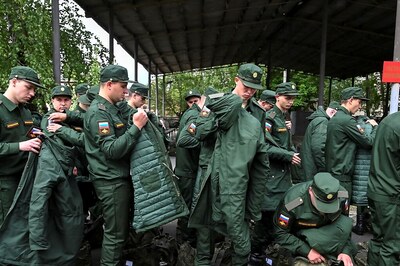
views
New Delhi: Indian Army soldiers will have their DNA profile stored in a data bank under a project launched by the Armed Forces Medical Services that will facilitate identification of bodies during any operation, attack or mishap.
The process involves collecting the blood sample of each soldier, sailor and airman, analysing the sample and storing in a blood bank. This will be the most convenient and fool proof way of confirming the identity of dead soldiers.
Defence Minister AK Antony in a written reply in the Lok Sabha on Monday said a pilot project is in progress at Armed Forces Medical College, Pune to conduct DNA profile of soldiers and develop necessary protocol for identifying them from their body tissues. The strength of the Indian Army is around 1.1 million.
The project 'Development of Protocol for DNA Profiling (Identification) and Repository of Personal of Armed Forces' has been approved by the Armed Forces Medical Research Committee and the pilot project will be completed by 2014.
DNA profiling is accepted as the most advanced and reliable method of establishing identity of living individuals as well as dead bodies and body remnants.
The armed forces in the United States and Israel are known to use such facilites. The need for DNA profiling was felt in the United States after the 9/11 attacks in 2001.
Knowing the identity of each soldier, especially those deployed in the forward areas, is critical in case of deaths in the battlefield or in action. The profiling helps to identify the remains of the soldier including those mutilated beyond recognition.
There is no time-frame set for completing the project considering that it's a long-drawn process of collecting samples from various formations and units. Post-pilot study, blood samples of all soldiers are expected to be collected by doctors working at their respective field units. These samples can be stored up to 21 years at the repository of the profiling centre and will be tested by using modern equipment and machines.
With Additional Inputs From PTI




















Comments
0 comment